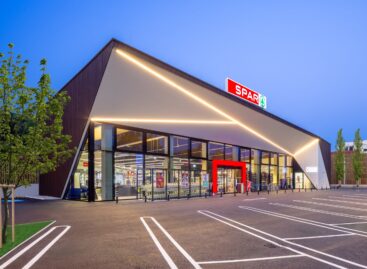Magazine: Price promotions /Re-planning

Guest writer:
Dr. Zsófia Straubinger
lawyer, partner
Réti, Várszegi és Társai
Law Office PwC Legal
On 28 May 2022 Directive (EU) 2019/2161 of the European Parliament and of the Council amending Directive 98/6/EC should be applied in Hungary, together with the new rules amending the Hungarian government’s decree 4/2009 (01.30) NFGM-SZMM. The new regulations will rewrite the promotional practices of enterprises, in order to prevent retailers from raising reference prices right before promotion campaigns, so that shoppers will think they benefit from a bigger discount.
The lowest price of the last 30 days will be the basis

Guest writer:
Dr. László Szűcs
lawyer, partner
Réti, Várszegi és Társai
Law Office PwC Legal
According to the new rules, when a price reduction is announced, the retailer must specify the price used in the period leading up to the discount. This price must be the lowest price applied by the retailer in the minimum 30-day period before the promotional price cut. Online shops based in Hungary or selling to Hungarian consumers must also comply with the new regulations. However, the new rules don’t cover perishable goods or products with a short shelf life. Although there is still debate about the definition of this product category, basically what belongs here is groceries.
If it isn’t the ‘usual’, it needs to be explained
Although the new rules will only come into effecton 28 May, retailers have to keep them in mind already in April, when planning promotions. It must be noted that the new regulation only applies to price announcements, so if a retailer sets a lower price without any notification, it doesn’t have to indicate the earlier price or observe the reference period. The announcement of a price reduction means all kinds of communication that call shopper attention to the fact that the price of the given product has changed. This can be the term “promotion” or price tags, wobblers and other POS tools, together with their virtual counterparts. If a retailer decides to utilise new and not the “usual” expressions, it should explain to shoppers what “long-lasting low price” or “our company’s offer” exactly mean.
Reference period
When defining the reference period, an enterprise can decide not to specify a 30-day period as required by the regulation, but a longer one when setting the prices. So if a retailer wishes to sell one of its products at a lower price than before and it announces this to consumers, it isn’t required to check the earlier price every 30 days, as a product can be sold at a long-lasting lower price. Yet, it is important to make it clear to consumers what time period the retailer refers to when it talks about earlier prices.
Certain promotion types are an exception
It must be noted that there are promotion types to which the new rules don’t apply. The new regulation doesn’t cover loyalty programmes (and the related discount cards and vouchers), which offer a price reduction to all products of the retailer. Plus the new regulation doesn’t cover personalised price discounts either – a good example of this is when a customer is entitled to buy at a lower price because of their earlier purchases. When a retailer is utilising an introductory price for a product, the new rules don’t apply as there is no earlier period to compare the price with.
In the spirit of transparency
When the new rules are introduced, perhaps it is best for a retailer to rethink its whole marketing strategy, because new amendments to the consumer protection act are likely to be passed by legislators. The new regulations are related to the obligation of “transparent communication with consumers.” For instance one of the areas concerned is recommending products online. It is very important to inform consumers about the main conditions of price setting, because this way they can make well-founded buying decisions. Re-planning promotions will be the task of not only retailers and marketing managers, but also of lawyers. //
Related news
SPAR continues to reduce prices
🎧 Hallgasd a cikket: Lejátszás Szünet Folytatás Leállítás Nyelv: Auto…
Read more >Related news
The Hungarian Food Book is 50 years old
🎧 Hallgasd a cikket: Lejátszás Szünet Folytatás Leállítás Nyelv: Auto…
Read more >NKFH: inspections focus on discount prices and customer deception
🎧 Hallgasd a cikket: Lejátszás Szünet Folytatás Leállítás Nyelv: Auto…
Read more >








